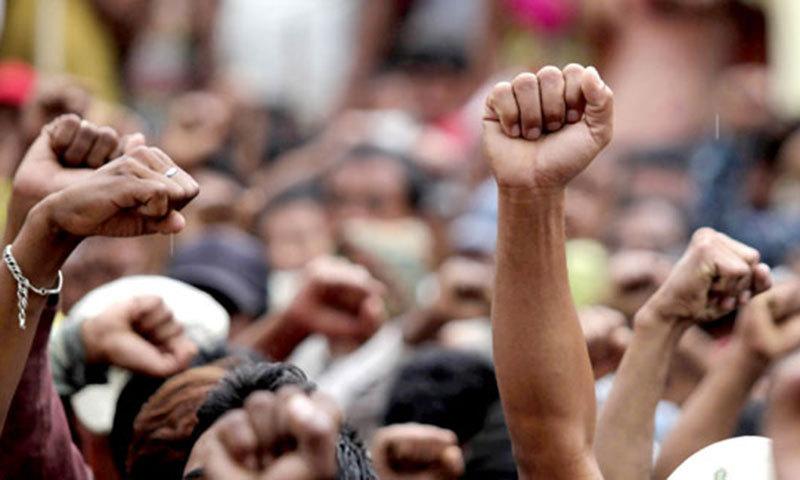Pakistan to Witness Nationwide March Against Price Hike on June 21

The march will begin on July 20 and conclude in Islamabad on July 29 (Photo: The Dawn)
The Pakistan Mazdoor Kisan Party (MKP) will launch on June 21 a countrywide protest march against the rising prices and the government’s attempt to surrender the economy to International Monetary Fund’s (IMF) neo-liberal diktat. Taimur Rahman, general secretary of the MKP, said in a press conference in Rawalpindi last week that the march would begin in Lahore and would proceed towards the capital city of Islamabad, concluding there on July 29.
Rahman, speaking to Peoples Dispatch, said that various progressive sections and left parties have already extended their support to the march. He further added that the main demands of the protest march include an increase in the budget allocations on education and healthcare, an increase in employment by increasing development expenditures, as well as lowering the cost of living by subsidizing items of basic needs of the poor.
The MKP has called for financing the above mentioned budgetary increases by widening the tax base that relies on a progressive income tax on capitalists and landlords, and by bringing black economy into tax net.
Pakistan’s economy and IMF
The protest march comes in the background of Pakistan witnessing high inflation, which has led to a rise in the prices of essential commodities. According to reports, the country currently has the highest inflation rate in five years, touching 9.4% in March. The Imran Khan-led government’s solution to the problem was to turn to the IMF for a bailout package. The move has been criticized by the PMK, as well as other progressive sections and parties, as it would lead to the cutting down of public and social welfare programs. This would further exacerbate the economic burden on the poor. The IMF loan for Pakistan would mean “structural adjustments” in the country’s economic landscape, including privatizations and the scrapping of subsidies.
During the last stages of the loan negotiations with the IMF, Imran Khan fired finance minister Asad Umer as he was reluctant to conform to the demands of cutting down subsidies in crucial sectors like fuel.
Pakistan currently has an outstanding debt of around USD 5.8 billion from its previous IMF borrowings.
Get the latest reports & analysis with people's perspective on Protests, movements & deep analytical videos, discussions of the current affairs in your Telegram app. Subscribe to NewsClick's Telegram channel & get Real-Time updates on stories, as they get published on our website.
























